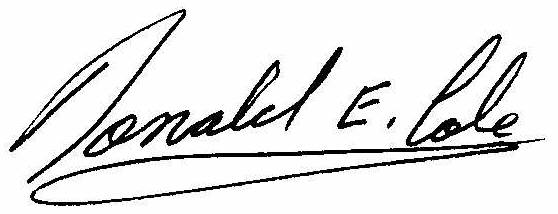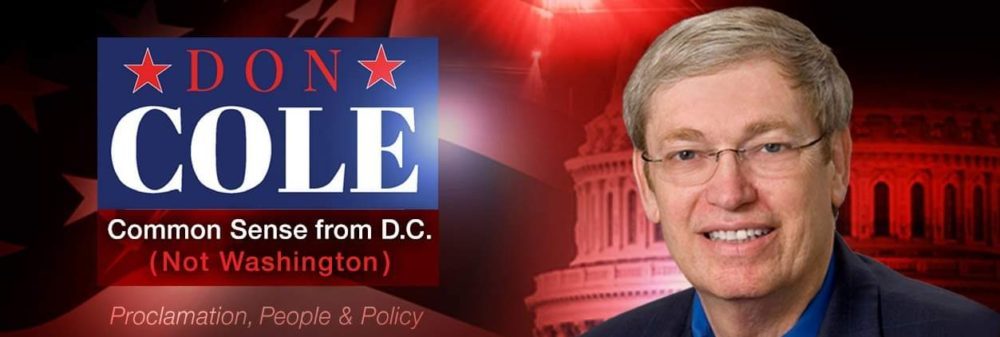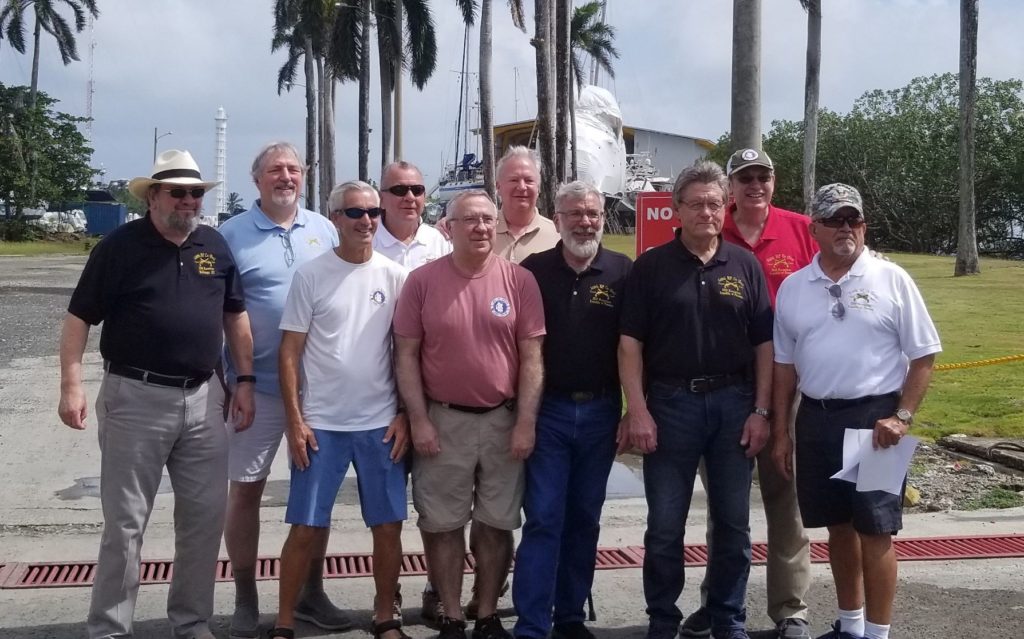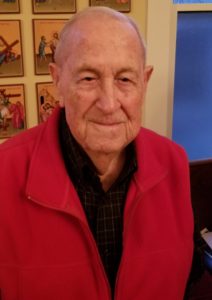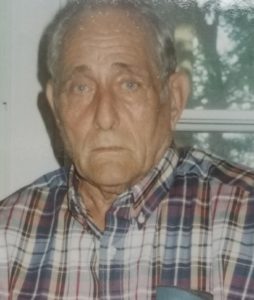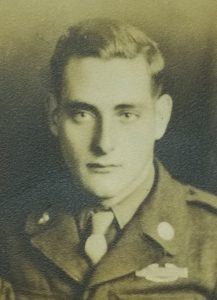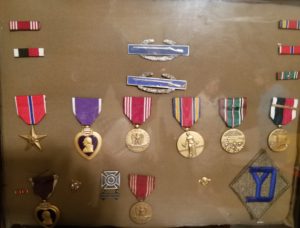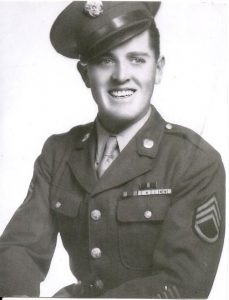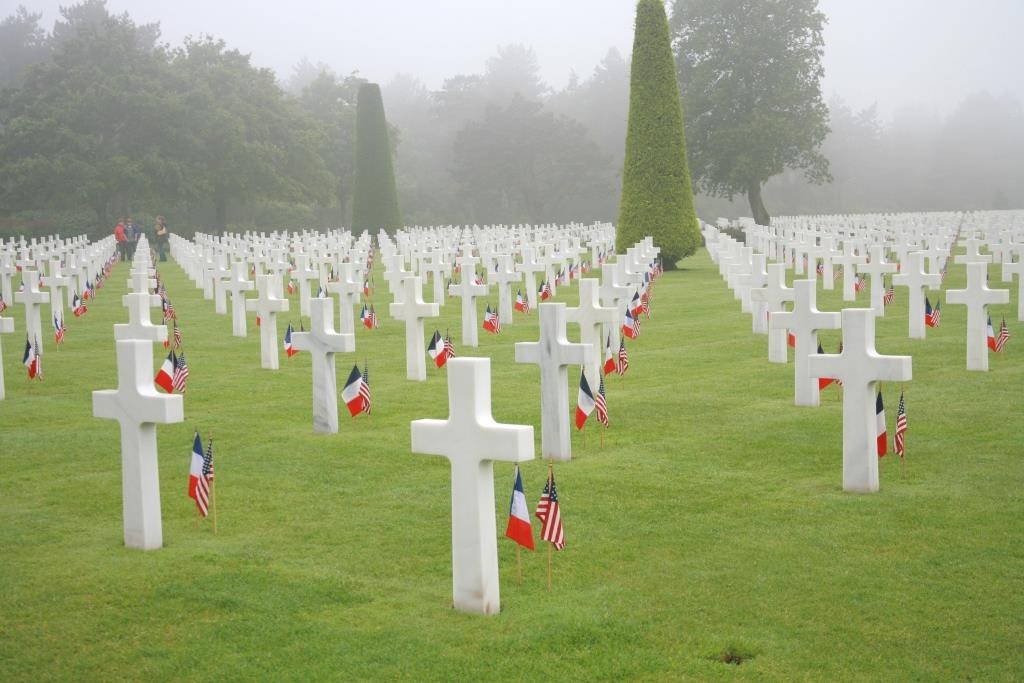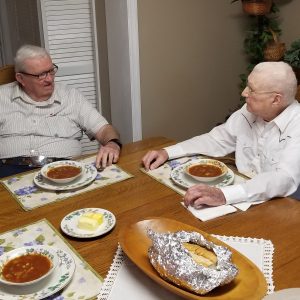
Robert Cole (l) & Billy Forrest (r)
These two veterans of World War II are enjoying a bowl of homemade vegetable soup and talking about their Army days. They might not be alive today had it not been for an historic decision made by President Harry Truman.
As WWII was coming to a close on the European front, attention turned to the Pacific and Japan. Among options available, a massive invasion of Japan similar to Normandy was on the table.
There was a big difference in Normandy and Japan. Normandy was in France, a nation occupied by the German army. Japan was not an occupied nation.
An invasion of Japan would have been an invasion of the homeland of a people who had already demonstrated a willingness, even desire, to heroically die for their country. Normandy would have been a small skirmish contrasted to the American lives that would be lost in an invasion of Japan.
Another option was a secret weapon that was ready for deployment. This weapon would reign destruction and terror of such a magnitude that the Japanese might choose to surrender. President Truman decided to use the new weapon.
On August 6, 1945 the first atomic bomb fell on Hiroshima. Sixteen hours later, President Truman called for Japan’s unconditional surrender or, “expect a rain of ruin from the air, the like of which has never been seen on this earth.”
The Japanese leaders fiercely debated among themselves about continuing the fight for favorable conditions of cease fire or accepting the American demands. On the evening of August 8, the Soviet Union broke their neutrality treaty with Japan and declared war. Shortly after midnight August 9, the Soviets moved into Manchuria.
Later that day, the Americans dropped the 2nd atomic bomb on Nagasaki. Japanese Emporor Hirohito had enough and ordered the Japanese to accept unconditional surrender. He gave a radio address announcing the surrender on August 15. On August 28, 1945, the Americans began the occupation and rebuilding of Japan.
Robert Cole and Billy Forrest were both draftees from Georgia. They were both sent to Japan as part of the American occupation at the end of the war. They were both assigned to the Signal Corp.
73 years later, they met each other for the first time. They compared notes and found out that both had been deployed to Japan immediately following the Japanese surrender. Both were in the Signal Corp. Both recall going through a terrible storm on the way to Japan. They concluded that they might have been on the same ship.
They served in different locations in Japan. Instead of fighting the Japanese, they made friends with them and helped rebuild the nation. They were in Japan for about a year before being sent home and receiving their honorable discharges.
Robert Cole married and had two children. One of them was me. Billy Forrest was already married when he was drafted but he and his wife never had children. Both of these men are now in their 90’s.
They have lived productive lives and impacted the lives of thousands. Billy became a pastor, plays the guitar and sings. He still preaches or pulls out his guitar and sings on ocassion today. Robert applied his Signal Corp training to work at Robins Air Force Base where he retired working in Foreign Weapons Sales. Today he loves to cook and design and build models from scratch.
I may write more about these men later. Both have a great story to tell.
These two men, along with thousands of other young Americans, could have easily been casualties on a Japanese beach in the Pacific Ocean. Billy Forrest could have left a widow back in Georgia. Instead, they were young Americans who befriended former enemies and helped to rebuild a new allied nation of Japan.
Personally, I am thankful that President Truman chose the nuclear option. My prayer is that we never have to use that option again. I also pray for the wisdom of courage of every American President who may have to weigh that decision and use it if necessary.

I appreciate you taking the time to read my thoughts. Please forward these to your friends and share on Facebook.
Sign up to below to get my commentaries sent directly to your in-box.
I promise, you won’t get a bunch of junk and I will not share your e-mail address with anyone. When you get an e-mail from me, you can be assured that it will be easy to read, informative, and usually short. Thank you again for reading.











 by
by 
